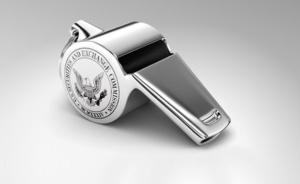SEC distributes more than $4 million bounty to four tipsters
For tipping off and aiding the US top watchdog with high-quality information that led to successful enforcement actions, the United States Securities and Exchange Commission has awarded more than $4 million to four whistleblowers.

For alerting the SEC to breaches and then providing investigative leads, a whistleblower was awarded $2 million. In addition to the tip, the whistleblower participated in multiple interviews to identify key individuals and entities. His assistance helped the regulator devise an investigative plan in early stages, preserving the watchdog time and resources, it said.
In this particular case, a second whistleblower has received more than $150,000 for providing information that prompted SEC staff to expand its investigation.
In the second order, a tipster is getting a cool $1.1 million for blowing the whistle on a misconduct that resulted in a successful enforcement action. Another $500,000 was separately distributed to a whistleblower for tipping it off and giving continuing assistance during the SEC investigation. While the second whistleblower’s information was important, the first whistleblower’s information was more significant as it was broader and more timely submitted, the SEC said.
“Today’s awards underscore the important role that whistleblowers play in detecting and halting securities laws violations. Each of the whistleblowers provided high-quality information that made an important contribution to the success of the underlying enforcement action,” said Emily Pasquinelli, Acting Chief of the SEC’s Office of the Whistleblower.
The SEC regulator did not name the companies involved or the people getting the awards, citing federal law that protects confidentiality.
Today’s announcement brings the whistleblower program’s total endowment to over $946 million since issuing its first award in 2012.
Whistleblowers are entitled under law to between 10% and 30% of the monetary penalties paid by companies in cases where their information led to a successful enforcement action of $1 million or more. However, the decision-making process takes some time as the agency receives a flood of requests for awards and tips on potential corporate wrongdoing.
The power for US regulators to issue rewards was established as part of the Dodd-Frank financial reform law that was set in 2010 for encouraging workers to speak up about wrongdoing.









